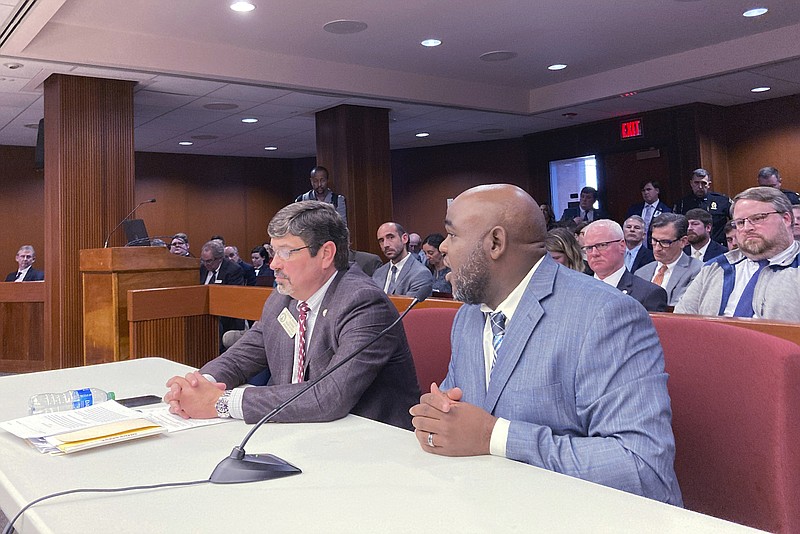As Georgians, we all benefit from investments in our transportation infrastructure that allow businesses to transport goods from point A to point B as quickly and inexpensively as possible. As someone who worked for UPS for 30 years, I know how critical trucks are to our economy and to families like mine.
But as much as we need the trucking industry, we also recognize that big trucks must share the road, and we need common-sense regulations for the good of all Georgians.
Last year, two bills were introduced in the Georgia General Assembly to allow for heavier log trucks. Fortunately, neither passed, but advocates are back at it. This year, legislation to allow all trucks to operate at weights as high as 90,000 pounds has passed the Georgia House Transportation Committee and is expected to go to the full House for its consideration.
While I understand that companies want to haul additional weight to their lower costs, it would come at the expense of highway safety, as well as taxpayer dollars to repair or replace damaged bridges and roads.
More troubling, because the maximum weight for trucks on the interstates is 80,000 pounds, these heavier trucks will be forced to operate on our state and local roads. Local roads, especially those in rural areas like ours, are not made for 90,000-pound trucks or heavier. They are not built to the same standards as state roads and interstates because it's cost prohibitive.
Think about the impact here locally. We already see lots of trucks coming off the interstates and using state roads like 136 going over Lookout Mountain. In Trenton, we have an industrial park where big trucks must use local roads to access the facilities. Often, we see trucks breaking off the shoulders of streets because of their heavy weight. It's city and county taxpayers -- not the owners of these trucks -- who'll foot the bill for additional repairs to roads and bridges. Given that counties maintain over 75% of the roads in the state, this legislation would hit rural counties particularly hard because they have to cover just as much geography but with a smaller tax base than more densely populated counties. This places an unfunded mandate on local taxpayers, requiring counties to raise taxes or divert money from other important programs.
On top of infrastructure issues, these heavier trucks will put Georgia motorists and pedestrians at risk. Adding weight to trucks can lead to longer stopping distances, greater wear-and-tear on key safety components, including brakes, and an increase in rollovers. Those of us who have traveled our mountain roads in wintertime know first-hand that wet and icy roads are treacherous even for regular-sized cars and SUVs. Adding extra weight to trucks is a disaster waiting to happen.
When large corporations push legislation to increase profits at the expense safety and taxpayers, we need to make sure our state legislators understand the impact back home. Heavier trucks would do far more harm than good in northwest Georgia.
I'm asking our local state legislators to protect our lives and our tax dollars by opposing any legislation allowing these bigger, heavier trucks on our roads, and I encourage my friends and neighbors in Dade County to join me in speaking up.
Robert Goff is a commissioner representing District 3 in Dade County.
